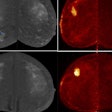
NEW YORK (Reuters Health), Sep 25 - As chemotherapy costs rise, it is likely that most colorectal cancer screening strategies will become not just cost-effective, but also cost-saving, according to a report in the September 24 online issue of the Journal of the National Cancer Institute.
As the authors note, colorectal cancer screening requires considerable investment from governments or insurance companies. If, along with any other beneficial effects, screening programs actually saved costs, these institutions might be more likely to invest in them.
Dr. Iris Lansdorp-Vogelaar, from Erasmus Medical Center, Rotterdam, Netherlands, and her colleagues used the MISCAN-Colon microstimulation model to determine the impact of widespread use of new chemotherapeutic agents on the costs of colorectal cancer screening in the general population.
The researchers examined three scenarios for chemotherapy use: past, present, and near future. The analysis assumed that survival improved and treatment costs increased for patients with advanced disease over the scenarios. Screening strategies included annual guaiac fecal occult blood testing (FOBT), annual immunochemical FOBT, sigmoidoscopy every five years, colonoscopy every 10 years, and annual guaiac FOBT combined with sigmoidoscopy every five years.
With widespread use of new chemotherapies, screening was associated with a more than twofold increase in treatment savings, the report indicates.
With the exception of colonoscopy, all of the screening methods had lifetime average treatment savings that exceeded the lifetime average screening cost. For instance, with annual guaiac FOBT, the average savings per individual was $1,398, while the average cost was $859.
Although colonoscopy did not become cost saving, the total net costs of the approach fell from $1,317 to $296 per individual, the authors note.
"Given the potential costs savings from screening, screening not only is desirable from the perspective of governments and insurance companies to reduce colorectal cancer incidence and mortality but also will help to contain the increasing costs for the management of colorectal cancer," the researchers state.
J Natl Cancer Inst 2009.
Last Updated: 2009-09-24 18:16:41 -0400 (Reuters Health)
Related Reading
JACR editorial: Medicare used double standard in VC decision, September 22, 2009
NEJM editorial lauds CMS rejection of VC, May 28, 2009
CTC advocates urge CMS to scrap decision, May 14, 2009
CMS rejects Medicare coverage for virtual colonoscopy, May 12, 2009
VC/AAA screening combo cost-effective in older adults, March 26, 2009
Copyright © 2009 Reuters Limited. All rights reserved. Republication or redistribution of Reuters content, including by framing or similar means, is expressly prohibited without the prior written consent of Reuters. Reuters shall not be liable for any errors or delays in the content, or for any actions taken in reliance thereon. Reuters and the Reuters sphere logo are registered trademarks and trademarks of the Reuters group of companies around the world.



















